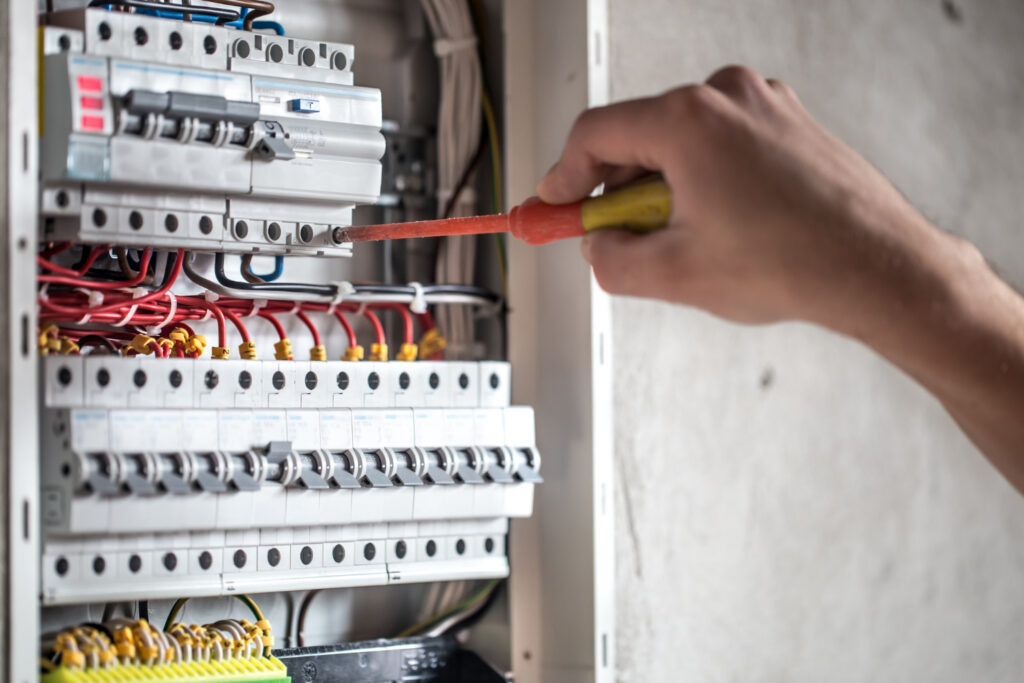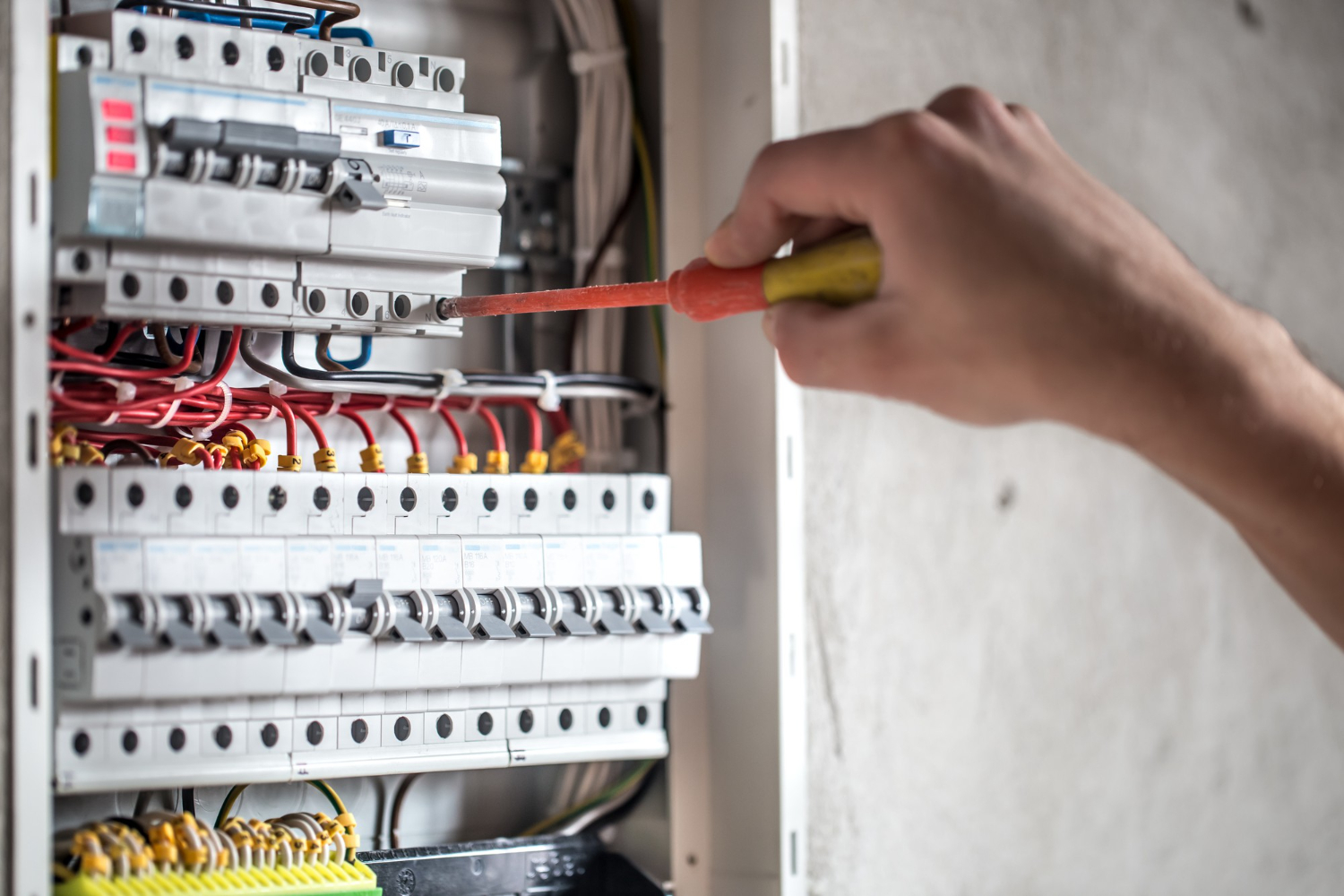Many mobile homeowners in Las Vegas don’t give their electric panels a second thought until something goes wrong. But this small metal box plays a big role in keeping your home safe and powered. When electrical issues arise, they often start with the panel. That’s why checking it monthly isn’t just a good habit—it’s a critical part of preventing larger electrical problems down the road. Las Vegas summers bring heavy electrical usage from cooling systems and household appliances, which can put more strain on aging or poorly maintained panels.
Routine checks help catch early signs of damage, wear, or other safety concerns before they create serious hazards like power loss or overheating. Whether your mobile home is parked in a quiet neighborhood or part of a larger Las Vegas community, making sure your electric panel is functioning properly protects your household and extends the life of your system. The good news is that most of these monthly inspections are simple but meaningful, and knowing what to look for is the first step.
Identifying the Components of Your Electric Panel
Understanding what’s inside your electric panel makes regular maintenance far less intimidating. You don’t need to pull anything apart—in fact, you shouldn’t. But you should be familiar with the basic parts that are visible once the panel door is open. This awareness will help you spot the early warning signs of electrical trouble and decide when it’s time to bring in our professionals.
Here’s a breakdown of what you’ll typically find inside:
– Main Breaker: This is the large switch usually located at the top or bottom of the panel. It controls electricity flow into your mobile home. If something goes wrong, the main breaker can shut down all power.
– Circuit Breakers: These smaller switches are lined up on both sides of the panel. Each one controls a specific area or item in your home, like the air conditioner or kitchen outlets. If there’s an overload or fault in one area, the related breaker will trip automatically.
– Bus Bars: These are metal strips that distribute power to each breaker. They’re not always visible in older panels, but in newer units, they’ll usually sit behind the breakers. They should never look cracked, discolored, or burnt.
– Grounding System: This is the safety component that redirects excess electricity away from your home during a surge. It connects to a ground wire or rod outside. While it’s not always inside the panel box, signs of a faulty grounding system like lights that flicker frequently may show up during an inspection.
One example of how these components impact your home: if your AC shuts off unexpectedly during a hot Las Vegas afternoon and doesn’t come back on, a tripped breaker or issue with the bus bar might be the cause. By recognizing what each part does, you can better describe the issue and get help faster.
Monthly Visual Inspection Checklist
Routine inspections don’t involve complicated tools or electrical knowledge but do require consistency. Doing this once a month creates a better chance of catching damage early. These checks can be completed in less than ten minutes but give you peace of mind that nothing looks out of place.
Focus your monthly inspection on the following:
1. Look for physical damage: Check the panel exterior and interior for cracks, dents, or anything that looks loose.
2. Check for corrosion or rust: Pay attention to screw heads, metal surfaces, and areas near the breakers. Any green or white powder-like buildup is a sign of corrosion.
3. Smell for anything odd: A burnt odor is a red flag that something is overheating or burning inside the panel.
4. Look for discoloration: Darkened spots, melted wire insulation, or burn marks usually point to overheating or past electrical issues.
5. Make sure breakers are securely in place: Lightly tap to confirm they’re snug and nothing is wobbling.
6. Check for pests or nesting materials: Rodents or bugs can squeeze into panel boxes and cause short circuits.
If something doesn’t look right, the best next step is to have our technicians take a look. Early repairs outpace emergency rewiring both in cost and safety.
Routine Testing and Maintenance Tips
Beyond a monthly visual inspection, a few simple tests and tasks can give you better insight into how well your mobile home’s electric panel is functioning. Sticking to a regular maintenance routine in Las Vegas is especially helpful during high-use months like summer, when air conditioners run long hours and appliances cycle more heavily than usual.
Here are some key steps to consider each month:
1. Flip and test circuit breakers: Once a month, switch each breaker off and then back on to verify that they move properly and snap into place without any delay or resistance. If one feels loose, clicks slower, or hums during operation, that could be a sign of internal damage or corrosion.
2. Monitor for weak grounding: A properly grounded system helps protect your mobile home from voltage overloads. Flickering lights or slight shocks from appliances might point to grounding problems. If you notice these signs, it’s important to have the grounding system professionally tested.
3. Check circuit labels: Make sure every breaker is correctly labeled. If power goes out in one area of your home, knowing which breaker cuts power to that section saves time and helps avoid confusion. Well-labeled panels also help our technicians diagnose issues faster.
4. Look for overheating indicators: Warm spots on the panel cover or breakers that feel hot suggest that something isn’t working right. This could lead to bigger problems and should be looked at right away.
Simple monthly attention like this helps maintain control over electrical safety and reduces surprise issues—especially during seasonal usage spikes. If any step feels unclear or something doesn’t seem right, it’s better to get our professionals involved early.
When to Call Our Professionals
There are moments when problems go beyond what regular inspection or light testing can handle. Knowing the warning signs of a deeper electrical issue can make all the difference in keeping your home safe.
Here are common signals that it’s time to bring in our professionals:
– Odd odors: A burnt or chemical smell around the panel often signals a component melting or overheating inside. This needs immediate attention.
– Frequent breaker trips: Breakers that trip repeatedly even after being reset often point to overloading or wiring problems that can’t be fixed with a quick inspection.
– Visible smoke or sparks: These are serious hazards and may be signs of a potential fire risk.
– Buzzing or clicking sounds: These sounds can be linked to a loose connection or improperly seated breaker and need to be looked at before they turn into dangerous faults.
– Power issues in parts of your home: If certain outlets or fixtures lose power randomly while others work fine, the source could trace back to a problem sized at the panel or behind the breakers.
For instance, one Las Vegas homeowner noticed their kitchen outlets would stop working for hours and then kick back on suddenly. After checking the breakers and finding no tripped switches, they contacted our technicians. We found a damaged breaker that wasn’t visually obvious but was failing under heavy cooling system loads. Catching it early saved their panel from more severe damage.
Keeping Your Mobile Home Safe and Functional
Ignoring your electric panel for too long can create a chain reaction of problems from overloaded circuits to costly panel damage. Quick monthly checks and small maintenance habits protect more than your appliances. They protect your mobile home and everyone living inside.
Las Vegas homes, particularly mobile ones that run high-power systems like central ACs in summer, rely on steady panel performance. Once your panel starts showing signs of wear, it’s only a matter of time before something gives way. Regular maintenance helps prevent that and keeps your system dependable during the months you need it most.
Getting ahead of failure is easier than dealing with full outages or dangerous faults afterward. If anything looks off during your checks or doesn’t feel right, don’t try to fix it yourself. Our professionals are trained to handle the risks and know how to get your system working safely again. Staying proactive now helps you avoid far more stress, inconvenience, and cost later.
If you notice that your mobile home electric panels in Las Vegasare not functioning as expected or showing signs of strain during high-demand summer months, taking prompt action can prevent more severe issues down the road. Ampere Electric understands the importance of regular maintenance to keep your home safe, and our professionals are ready to help you evaluate your system and address any concerns before they escalate. For a quick estimate or to book a service visit, please contact us today.



